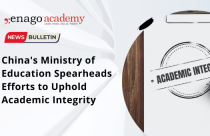Springer Nature Censorship: Publisher Blocks Access to Articles in China

Springer Nature censorship on about 1000+ articles online in China shows how academic freedom has to comply with specific local regulations of the government. The censored academic articles contain sensitive keywords such as “Taiwan”, “Tibet” and “Cultural Revolution”. The present regulation aligns with a government effort to extend control over online academic freedom and aspects of civil society. These regulations follow-up just months after Britain’s Cambridge University Press (CUP) similarly removed publications, from its website “China Quarterly”, to comply with the Chinese authorities.
Although CUP later reversed its decision in response to academic outcry, Springer Nature’s recent restriction remains in place. As a result, Springer Nature, which circulates science magazines Nature and Scientific American, faced the risk of complete expurgation online. While present actions merely comply with strict local government regulations, it is not in the interest of the academic community. The notion that this step violates freedom of information to the scientific and academic community does not represent the publisher’s views either.
After Cambridge University Press, Springer Nature Blocks Access
Topics that remained blocked via CUP included the “1989 Tiananmen Square democracy protests”, and the “1960s Cultural Revolution and Tibet” although these secret documents are widely considered essential to understand the events of 1989 and relations with Taiwan. This was done so that CUP could continue to host online access to other educational materials, for the local academic community. However, for Springer Nature, this is not an editorial censorship; therefore, the content published or made accessible will remain unaffected globally.
Events at CUP and Springer Nature highlight the economic advantage China has over a foreign company access to its massive market. Ongoing implementations since February 2016 align with President Xi’s aim to ensure media platforms are “guided” by the Communist Party. According to a survey of The Associated Press, the blocked content is classified sensitive by the Communist Party. This tightened information control aims to prevent opposition to the ruling Communist Party. This also extends to lawyers on sensitive cases, non-governmental organizations, and churches.
Influence of The Government on Academic Freedom
Chinese academics have long endured political interference and increased supervision, including classroom monitoring and ideological audits. Restricting academic freedom is a longstanding notion, reflecting on Chinese policies that actively aim to narrow public engagement and discussion. Retrograde steps of this nature can affect Chinese scholars in principle, limiting access to global scholarship within their locality. Current policies have replaced the earlier assumption that academic journals were immune to restrictions, owing to their inherent paywalls.
As selective censorship moves beyond CUP to Springer Nature and even JSTOR, academic freedom in China remains increasingly obscure. These restrictions certainly impose limitations and hardships on the researchers. However, a virtual software is available that can allow users override China’s internet censorship known as the Great Firewall. Although bypassing the block is possible via a virtual private network (VPN), its reliability remains questionable for local customers.
The government has also vowed to crackdown on VPN users in China, with Apple removing apps from its stores in compliance. Therefore, the capacity for business expansion in China is tedious, with foreign media retracting plans due to scrutiny that eliminates readership. Although CUP faced global backlash for compliance with Chinese censorship, the move compromisingly allowed them continued visibility online. During circumstances of this nature, finding a middle ground is wearisome in order to gain publishing access to any market.
Future of The Chinese Academics at Stake
In response to a recent petition circulated among academics, CUP’s website “China Quarterly” is now fully accessible in China. However, comparatively, in compliance with increased vetting, SpringerLink maintains accessibility to 99% of its content to all Chinese customers. Following backlashes and petitions, the renewed CUP decision to restore access, to previously censored articles was met with strong support. The International Publisher’s Association urged the Chinese government to avoid further action against the University Press in retaliation. The disputed articles were released in alignment with the University’s founding principle of upholding academic freedom.
A similar follow-up from the publishers at Springer Nature will benefit the academic community at large. Although much of Nature’s contents remain accessible within China at present, the percentage restricted to China remains available worldwide. Reaching a compromise in this way has ensured that the academic content and sensitive information remain accessible to the wider audience. However, resorting to such extreme measures causes unnecessary conditions, affecting scholarly progress in China as voiced by countless local academics.
Ideally, the academic publishers hope that the authorities would cooperate to minimize the affected content and eliminate restrictions altogether for academic benefits. Unrestricted scholarship benefits impartial freedom of thought, innovation, and prevents extremism. It is the hope of Chinese academics who voice their opinion that this would be the standard in the future.
What do you think about this step of Springer Nature? Should the government of the country have a say on the academic freedom of its citizens?









